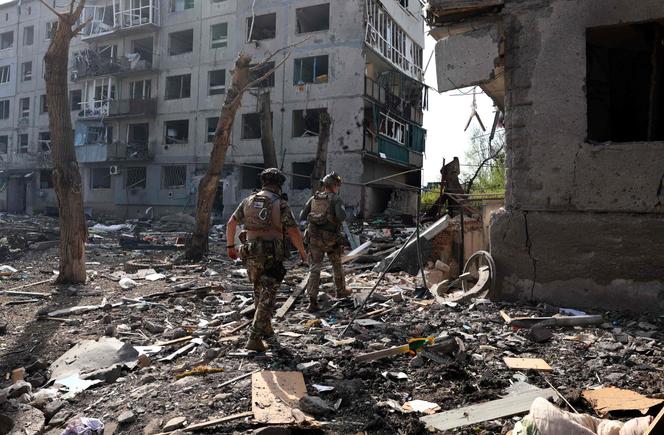


A sigh of relief crossed the ranks of Ukraine's supporters in Washington. On Wednesday, April 24, President Joe Biden signed the bill passed the previous day in the Senate, a few days after the House of Representatives, granting $61 billion in aid to Kyiv. The package is part of a larger one worth $95.3 billion, which also benefits Israel and Taiwan. In a speech, Biden acknowledged that the congressional route "was a difficult one," an understatement considering the six months of negotiations and reformatting of the project, blocked by a minority of radical Republican elected representatives. A first tranche of $1 billion was immediately announced by Washington, including long-range missiles.
The president stressed that this support for Kyiv represented an "investment" in the security of Ukraine, Europe and the United States. He pointed out that Russia, too, was benefiting from valuable support: Iranian drones, North Korean ballistic missiles and artillery shells and Chinese electronic components. Biden insisted that military deliveries were a stimulus for American production: Patriot missiles are made in Arizona, Javelins in Alabama and artillery shells in Ohio or Pennsylvania.
Finally, he paid tribute to the Republican and Democratic leaders in Congress, who managed to agree on a text that eventually brought together a very large majority of elected representatives. "There is a bipartisan consensus for that kind of American leadership," said Biden." We don't walk away from our allies; we stand with them. We don't let tyrants win; we oppose them. We don't merely watch global events unfold; we shape them."
In the afternoon, National Security Adviser Jake Sullivan appeared before the press at the White House. He did not rule out that "Russia could make additional tactical gains in the coming weeks" in eastern Ukraine, due to the human and material disadvantage Kyiv is currently suffering. But the adviser noted that "the structural dynamics of this conflict favor the country defending its own territory." According to Sullivan, the Ukrainian army has managed to destroy 700 armored vehicles and around 250 tanks since the beginning of the year.
However, Kyiv's troops have been on the back foot since the failure of their counter-offensive in the summer of 2023 and are on the verge of collapse in several places along the front. On April 20 and 21, the Russians broke through almost 10 kilometers of the Ukrainian line at Ocheretyne, a village in the Donbas northwest of Avdiivka, raising fears for a moment of a breakthrough in the Kyiv army's defensive system. The northeastern city of Kharkiv, with a pre-war population of 1.4 million, is under daily Russian fire. In a sign of the anxiety spreading to Kyiv, "the key [to the conflict] now is speed," acknowledged Ukrainian President Volodymyr Zelensky in a message on X on Wednesday, adding that "every leader who does not waste time is a life saver."
You have 45.92% of this article left to read. The rest is for subscribers only.
